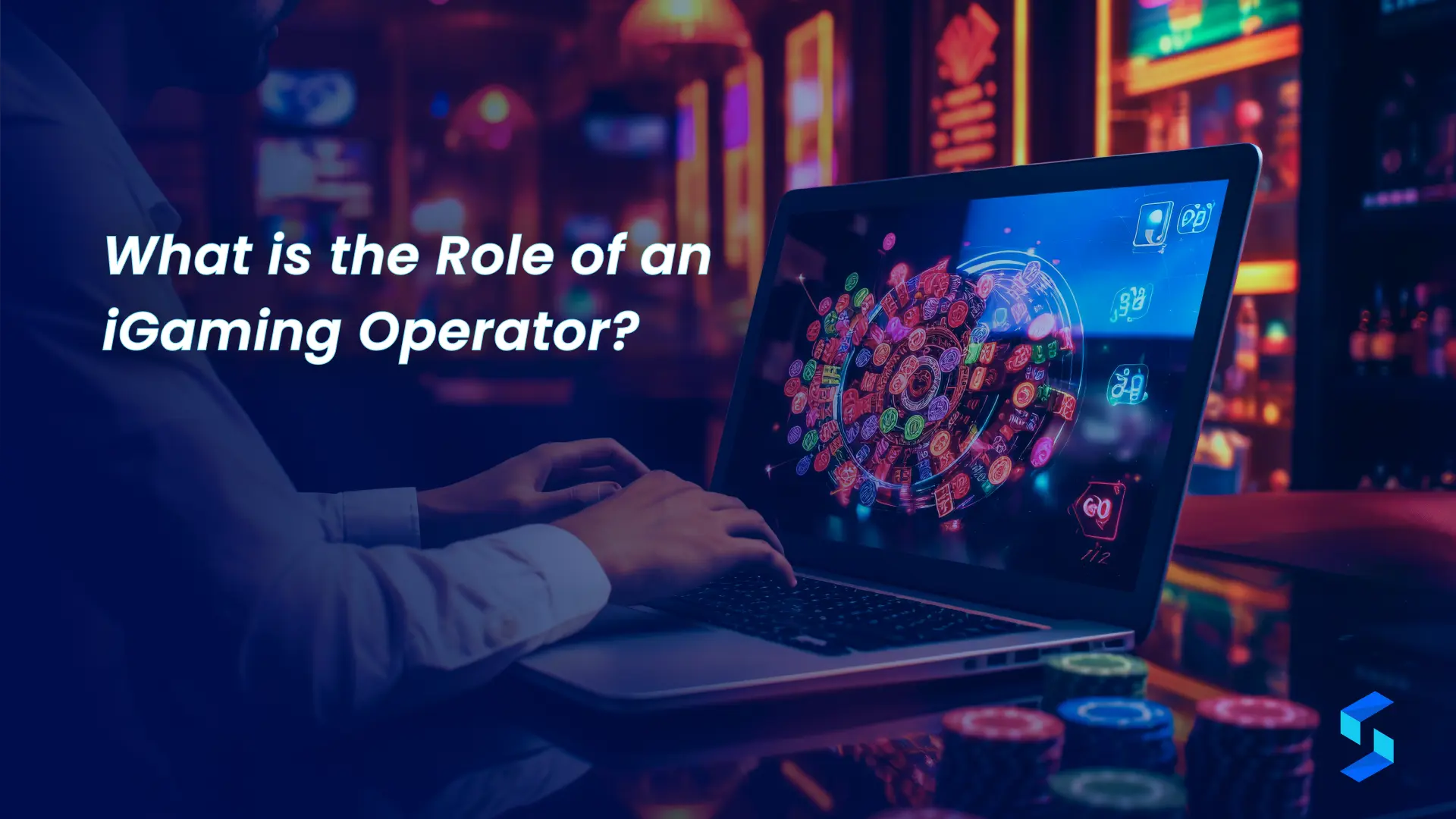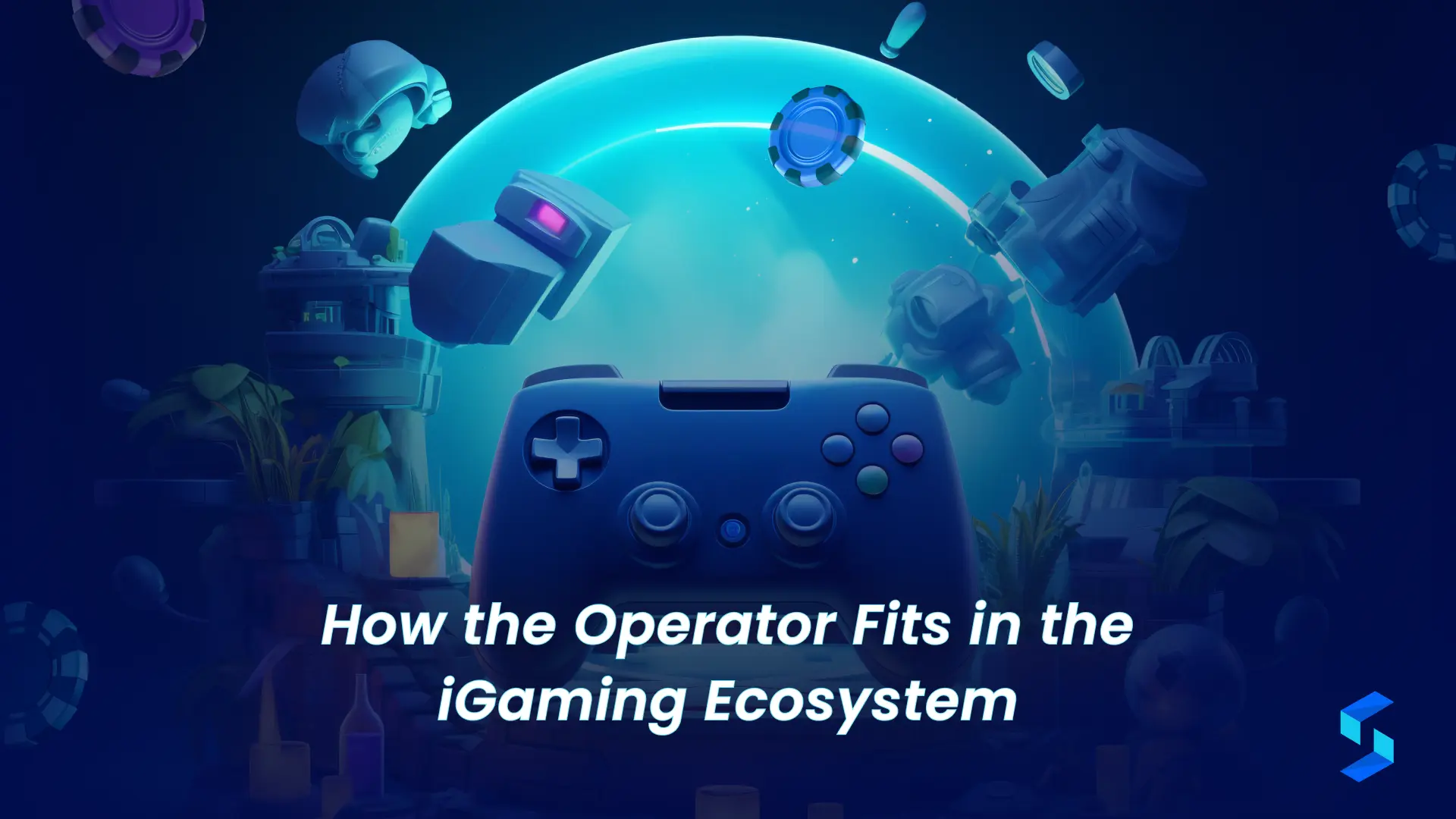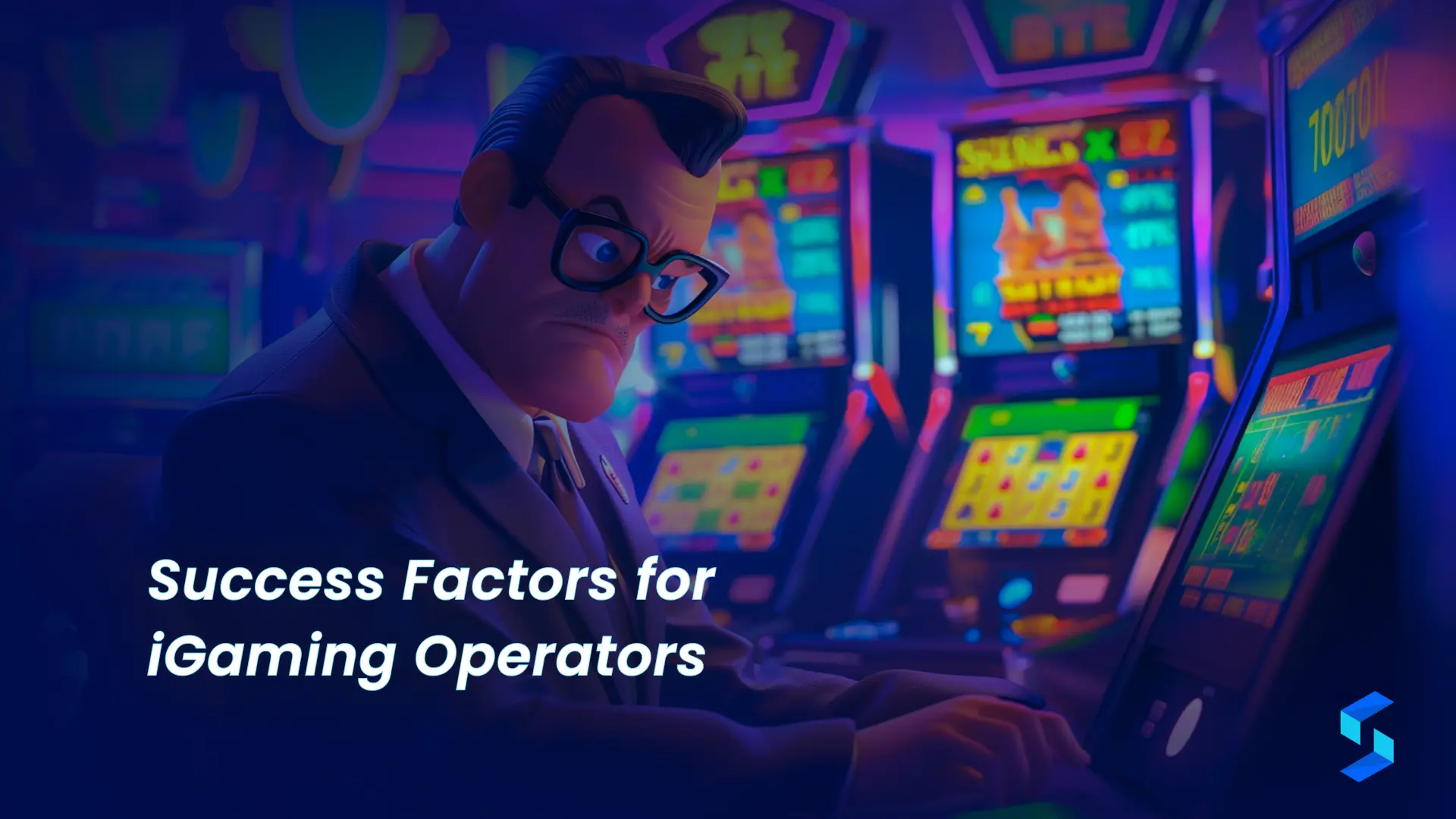Online gambling runs on a complex system driven by iGaming operators. These operators handle everything from game selection and platform management to payment processing, security, and regulatory compliance.
The global iGaming market is expected to reach $275 billion by 2034, creating pressure to increase operational efficiency, integrate cutting-edge technology, and execute precise market strategies.
Achieving success requires well-defined roles, strong organizational structures, and smooth workflows.
This guide breaks down the essential elements behind top iGaming operators, providing practical insight for anyone planning to launch or assess an online gambling business.
What is an iGaming Operator?
An iGaming operator runs the actual online gambling platform. Think of them as the digital casino owners, managing everything from the website interface to the real-money transactions behind the scenes.
- Handle user registration, verify player identity, oversee deposits and withdrawals, and ensure compliance with licensing rules.
- Integrate the game content, whether it’s slot machines, sports betting, or live dealer games, and decide which titles go live in which markets.
If you’re placing a bet, spinning a reel, or joining a live poker table online, you’re doing it through an iGaming operator. They’re the ones making the games accessible, the payments secure, and the platform legal in your region.
What is the Role of an iGaming Operator?

An iGaming operator manages and runs online gaming platforms, offering games such as sports betting, poker, casino games, and lotteries to players worldwide.
Their role extends beyond simply providing games; they are responsible for the entire player experience, platform integrity, and regulatory compliance.
Here are the key responsibilities of an iGaming operator:
- Platform Management: The operator maintains the online gaming platform, ensuring it runs smoothly, securely, and is user-friendly. This includes managing website infrastructure, software updates, and technical support.
- Game Selection and Integration: They curate and integrate a diverse portfolio of games from various game developers, ensuring a broad and engaging selection for players.
- Regulatory Compliance: Operators ensure the platform complies with local and international gaming laws and licensing requirements. This includes implementing responsible gaming policies and anti-money laundering (AML) measures.
- Payment Processing: Handling deposits and withdrawals securely and efficiently is crucial. Operators provide multiple payment options and ensure timely transactions.
- Customer Support: They offer dedicated customer service to resolve player issues, handle disputes, and provide assistance 24/7.
- Marketing and Player Acquisition: Operators develop marketing strategies to attract and retain players through promotions, bonuses, loyalty programs, and partnerships.
- Risk Management and Fair Play: Ensuring fair play and preventing fraud or cheating is essential. Operators maintain trust by using advanced security measures, data analytics, and auditing.
- Data Analytics and Reporting: They collect and analyze player data to optimize the gaming experience, tailor offers, and meet regulatory reporting requirements.
An iGaming platform cannot thrive in a competitive, regulated environment without a competent operator.
At Source Code Lab, we understand the iGaming industry’s speed. That’s why our delivery timelines are fast and our development cycles are efficient. You get a reliable partner who can adapt to your needs, add new features on demand, and keep your platform running 24/7. When issues arise, our expert support team is ready to resolve them before they affect your users.
Also Read: Understanding What is iGaming
Structure of the iGaming Industry and How an iGaming Operator Fits In
The iGaming industry comprises a diverse network of specialized players and service providers, each contributing essential components to deliver a smooth, secure, and engaging gambling experience.
From game creation to player support and regulatory oversight, every part of the ecosystem ensures the market operates efficiently and fairly.
This detailed analysis uncovers the core components that drive the iGaming industry’s success, revealing how each element plays a vital role in building resilient, scalable, and compliant operations.
1. Game Developers
Operators license and integrate games from developers to offer a diverse portfolio that attracts and retains players.
They rely on developers’ innovation and compliance features (like RNGs) to ensure fairness and variety. Without strong developer partnerships, operators can’t deliver engaging content.
2. Payment Processing Providers
Operators depend on payment providers to enable secure, fast deposits and withdrawals, which directly affect player trust and retention.
Operators coordinate with these providers to support multiple payment methods and meet regulatory standards on fraud and AML controls.
At Source Code Lab, we harness cutting-edge technology to redefine the iGaming experience. Our platforms feature AI-driven personalization, secure fraud detection, and immersive VR and AR gameplay.
We also support crypto payments and NFTs, offering next-generation features that appeal to modern players and help keep your platform ahead of the curve.
3. Platform Providers
Platform providers supply the software framework that hosts games, manages user accounts, and tracks transactions.
Operators use these platforms as their operational backbone, ensuring scalability, reliability, and regulatory reporting are handled efficiently.
4. Regulators and Gambling Authorities
Operators must secure licenses and comply with regulations imposed by these bodies.
They integrate regulatory requirements into their processes, from player verification to responsible gambling measures, maintaining their legal right to operate and protecting their reputation.
5. Affiliates and Marketers
Operators collaborate with affiliates and marketing teams to drive traffic and convert visitors into active players.
They provide promotions, track leads, and manage commission models, ensuring growth through strategic player acquisition and retention efforts.
6. Technology Providers and Software Integrators
Operators incorporate specialized tech, like CRM, fraud detection, and KYC tools, into their platforms to improve player management and security.
These integrations allow operators to personalize experiences, reduce risk, and optimize operations.
7. Customer Support Services
Operators deploy customer support teams to resolve player issues promptly, reinforcing trust and satisfaction.
Efficient support reduces churn and ensures compliance with regulatory expectations for player care.
8. Responsible Gambling Organizations
Operators implement tools and policies promoted by these organizations, such as self-exclusion and deposit limits, embedding responsible gambling into their platforms to protect players and meet regulatory demands.
9. Content Providers and Live Streaming Partners
Operators integrate live data feeds and streaming content to enhance real-time betting experiences, increasing engagement and expanding betting options. This content boosts user activity and differentiates operator offerings.
How the Operator Fits in the iGaming Ecosystem

Operators serve as the central hub that connects all parts of the iGaming ecosystem. They bring together game content, technology platforms, payment systems, compliance requirements, marketing efforts, and customer support into one cohesive offering.
Inputs:
- Game Content: Licensed games and live content from developers
- Technology: Platform software and specialized tools from providers
- Payments: Secure and compliant payment processing systems
- Regulation: Licenses and compliance frameworks from authorities
- Marketing: Affiliate networks and promotional channels
- Player Protection: Responsible gambling tools and policies
Outputs:
- Gaming Platform: A fully functional, user-friendly casino or sportsbook
- Player Management: Account and transaction handling with security
- User Engagement: Promotions, loyalty programs, and customer support
- Compliance: Adherence to legal and regulatory standards
- Revenue: Income generated from player deposits and betting activity
Example: Imagine launching an online casino. The operator licenses slot games from developers and uses a platform provider to host and run the site. Payment processors enable player deposits and withdrawals.
The operator ensures the site meets all regulatory requirements, works with affiliates to attract new players, and provides customer support for smooth gameplay.
In this way, the operator integrates all components to deliver a secure, enjoyable experience while driving business growth.
Suggested Read: Essential Features of Modern iGaming Dashboards
Success Factors for iGaming Operators

The iGaming industry is expanding rapidly, with the global market projected to reach $107.3 billion by 2024, driven by rising mobile adoption and a growing player base.
This fast-paced, competitive sector demands continuous innovation and operational excellence. Operators must excel across multiple critical areas to stand out, grow, and sustain profitability.
Success doesn’t come from a single advantage but from a combination of factors that together create a compelling, trustworthy, and engaging experience for players.
Below are the essential success factors that iGaming operators need to focus on:
- Regulatory Compliance: Operating within the legal frameworks of different jurisdictions ensures legitimacy and builds player trust. Compliance with licensing requirements and gambling regulations reduces the risks of fines, sanctions, or shutdowns.
- Technological Reliability: A strong, secure, and scalable platform is vital to deliver uninterrupted service. It must handle high traffic volumes, protect user data, and provide a smooth gaming experience to avoid player frustration or churn.
- User Experience Quality: The overall ease of use, including site navigation, loading speeds, and design, impacts player satisfaction. An enjoyable and intuitive interface across all devices engages players and encourages longer sessions.
- Game and Betting Diversity: Offering a broad range of games and betting options appeals to a wider audience. Diversity in content helps meet the tastes of different player segments and keeps the product fresh and exciting.
- Effective Marketing Reach: Attracting new players requires targeted, well-executed marketing strategies. Successful operators maintain strong visibility and brand presence to grow their customer base efficiently.
- Player Retention and Loyalty: Keeping players engaged beyond the first visit is critical for profitability. Mechanisms that encourage ongoing interaction and reward loyalty contribute to higher lifetime player value.
- Flexible Payment Options: Supporting various payment methods and currencies reduces friction in deposits and withdrawals. Easy, secure, and localized payment processes improve user satisfaction and trust.
- Data-Driven Decision Making: Analyzing player behavior and operational metrics helps identify opportunities and risks. Data insights allow operators to optimize offerings, marketing, and overall business strategy.
- Responsive Customer Support: Providing fast and effective customer service builds player confidence. Operators who resolve issues promptly and clearly foster loyalty and a positive reputation.
- Strong Partnerships: Collaborations with software providers, payment processors, and affiliates enhance the product portfolio and operational capabilities. Trusted partnerships enable faster market entry and innovation.
- Adaptability to Market Trends: The iGaming landscape evolves rapidly with new technologies and player preferences. Operators that can quickly innovate and adjust their offerings maintain competitiveness and relevance.
Future Outlook for iGaming Operators

The iGaming industry has evolved from a niche digital venture into a global powerhouse, attracting millions of users and billions in revenue annually.
As technology advances and markets mature, iGaming operators find themselves at a crossroads, facing both vast opportunities and complex challenges.
Understanding the future trends is crucial for operators looking to stay competitive, compliant, and profitable in this fast-paced environment.
1. Market Growth and Expansion
The global iGaming market is set for steady growth, fueled by better internet access and smartphone use. New regions like Latin America, Southeast Asia, and Africa are opening up as regulations improve.
Operators who customize their platforms with local content, languages, and payment options will gain an edge.
2. Regulatory Evolution
Regulations are tightening worldwide, focusing on player protection, anti-money laundering, and responsible gambling.
Operators must adapt quickly to varying rules across countries, investing in compliance and legal teams. Responsible gambling tools will become standard.
3. Technological Innovations
Technology is reshaping iGaming:
- AI personalizes user experiences and boosts fraud detection.
- Data analytics helps optimize platforms and player engagement.
- Blockchain and cryptocurrencies enhance transparency and payment speed.
- VR and AR promise more immersive betting environments.
4. Competitive Landscape
Competition is intensifying with:
- Large firms acquiring smaller operators to grow.
- Niche platforms succeeding by focusing on esports, fantasy sports, or regional games.
- User experience is becoming key; fast, secure, and easy-to-use platforms retain players better.
5. Marketing and Customer Retention
Marketing is moving toward targeted, data-driven campaigns. Operators use gamification and loyalty programs to keep players engaged. Social features like chat rooms and leaderboards boost community and competition.
6. Challenges and Risks
Operators face ongoing risks:
- Cybersecurity threats demand strong defenses.
- Regulatory changes can disrupt operations.
- Social scrutiny necessitates striking a balance between profits and ethical practices.
The future of iGaming is filled with opportunity, but success will depend on how well operators adapt to change.
Market expansion, technological innovation, and evolving customer expectations will open new doors, but only those who prioritize compliance, user trust, and strategic agility will thrive.
Conclusion
Understanding the role of an iGaming operator is crucial whether you’re building a platform, investing in one, or competing in the market.
Success in this space requires more than luck. It demands structure, strategy, and speed. Those who master these elements don’t just survive. They dominate.
At Source Code Lab, we empower operators with fully customizable, ready-to-launch iGaming platforms that streamline operations and support long-term growth.
Our solutions simplify complex tasks, including platform development, third-party integrations, regulatory compliance, and secure payment processing.
You stay focused on scaling your business while we take care of the technical foundation.
Why Choose Source Code Lab?
- Over 5 years of iGaming development experience with proven results
- Delivered 250+ projects from concept to launch and beyond
- Flexible integrations for games, payment providers, and analytics tools
- 24/7 multilingual support in English, Spanish, Portuguese, Turkish, and more
- Built-in compliance and security features for global markets
Get a consultation today and let Source Code Lab help turn your iGaming vision into a market-leading platform.


